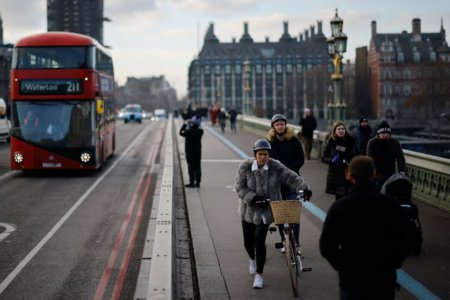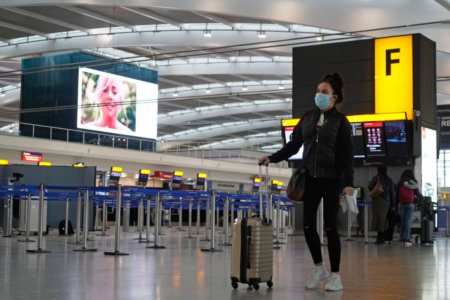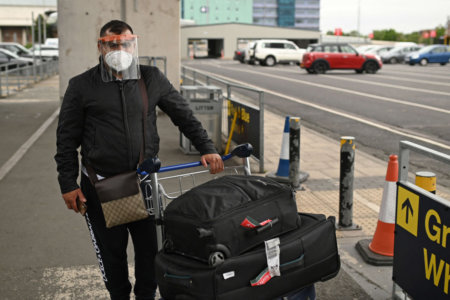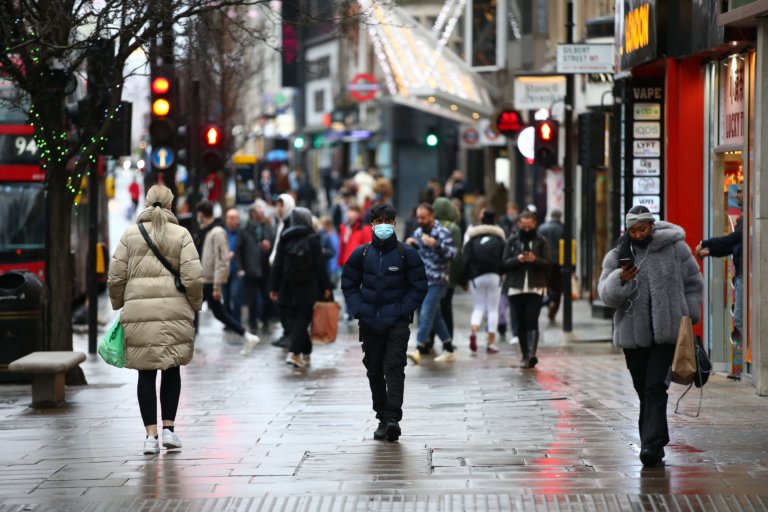
Good news for Indian students studying abroad in the UK: ministers are planning to ease immigration restrictions to simplify the process of living and working in the country.
The move is said to be part of a plan to strengthen trade relations between the two countries. This includes an intention to offer Indian citizens a visa deal similar to Australians, giving young workers the right to live and work in the UK for up to three years. On top of this, visa costs for students may be lowered to allow them to stay in the UK after graduation.
Visa fees for work and tourism may also be reduced. At the moment, this can cost up to 1,400 pounds.

British ministers are pushing for this deal in hopes to strengthen trade agreements between India and the UK. Source: Tolga Akmen/AFP
According to The Times UK, international trade secretary Anne-Marie Trevelyan will travel to Delhi this month to lead discussions on this matter. Loosening immigration rules is a key demand from Delhi.
She is said to be backed by foreign secretary Liz Truss, who seeks to limit China’s growing influence in the region.
UK ministers are keen to implement this plan, as a free trade agreement between the two countries would help solidify a closer economic relationship and thus provide UK businesses with an avenue into India’s growing economy. At the moment, India’s protectionist economy imposes significant tariffs on imports, providing a barrier to trade.
“India is projected to become the world’s third-largest economy by 2050 and a free trade agreement will open up huge opportunities for UK businesses to trade with India’s 2.25 trillion pound economy,” said a Department of International Trade spokesperson. “Companies up and down the country can look forward to the benefits, from manufacturers in the West Midlands to tech experts in Belfast, and we look forward to launching negotiations early next year.”
India does not currently hold bilateral trade deals with either the US or European Union, making UK ministers all the more eager to set up a working agreement.
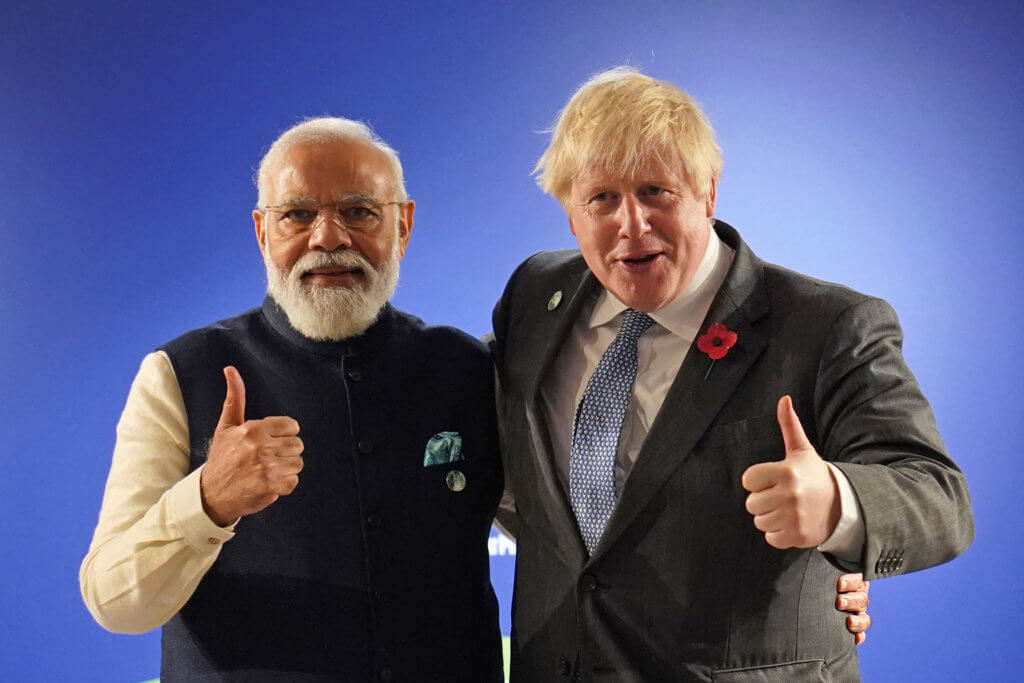
British PM Boris Johnson and Indian PM Narendra Modi agreed to a ‘2030 Roadmap’ last year. Source: Stefan Rousseau/AFP
Last May, a one billion pound trade and investment agreement with India was announced by Prime Minister Boris Johnson. This was expected to give UK businesses the opportunity to secure export deals worth more than 446 million pounds and thus create more jobs.
“Each and every one of the more than 6,500 jobs announced today will help families and communities build back from coronavirus and boost the British and Indian economies,” Johnson was quoted saying.
Indian students in UK may be granted visas similar to Australians
The UK has implemented a Youth Mobility Scheme visa allowing Australians aged 18 to 30 to stay in the UK with unrestricted work rights for up to two years. This includes young Australians graduating from university.
Under this visa, Australians can:
- Study in the UK
- Work in most jobs
- Be self-employed and set up a company, as long as: premises are rented, equipment is not worth more than 5,000 pounds and there are no employees
The scheme does not allow Australians to work as professional sportspersons, extend their stay in the UK, get public funds or bring in family members on their applications. Other countries included in the scheme include Canada, Monaco, New Zealand, San Marino and Iceland.
The move to include Indian citizens under a similar scheme may provide a boost to UK universities, many of which are already immensely popular with the country’s school graduates. Last year already saw a 30% increase in applications by Indian students to UK universities despite travel restrictions put in place as a result of the pandemic.

Home secretary Priti Patel will be granted new powers to impose visa penalties on countries that do not cooperate with deportations. Source: Oli Scarff/AFP
Resistance is expected from home minister Priti Patel
Major sources predict strong resistance from home secretary Priti Patel, who has announced plans to impose visa penalties on countries that are refusing to take back criminals and asylum seekers from the UK.
“We rightly take back British citizens who commit crimes abroad and other countries do the same,” she was quoted saying. “Some countries do not cooperate on returns and so we will impose visa penalties on those who refuse to take criminals back.”
Patel will be granted new powers to impose visa penalties on countries should they refuse to cooperate on deportations. With this, she will be able to suspend visas entirely, impose a 190-pound surcharge on applications to come to the UK or increase visa processing times.
Patel’s new powers will be afforded to her under the new reforms in the Nationality and Borders Bill.








